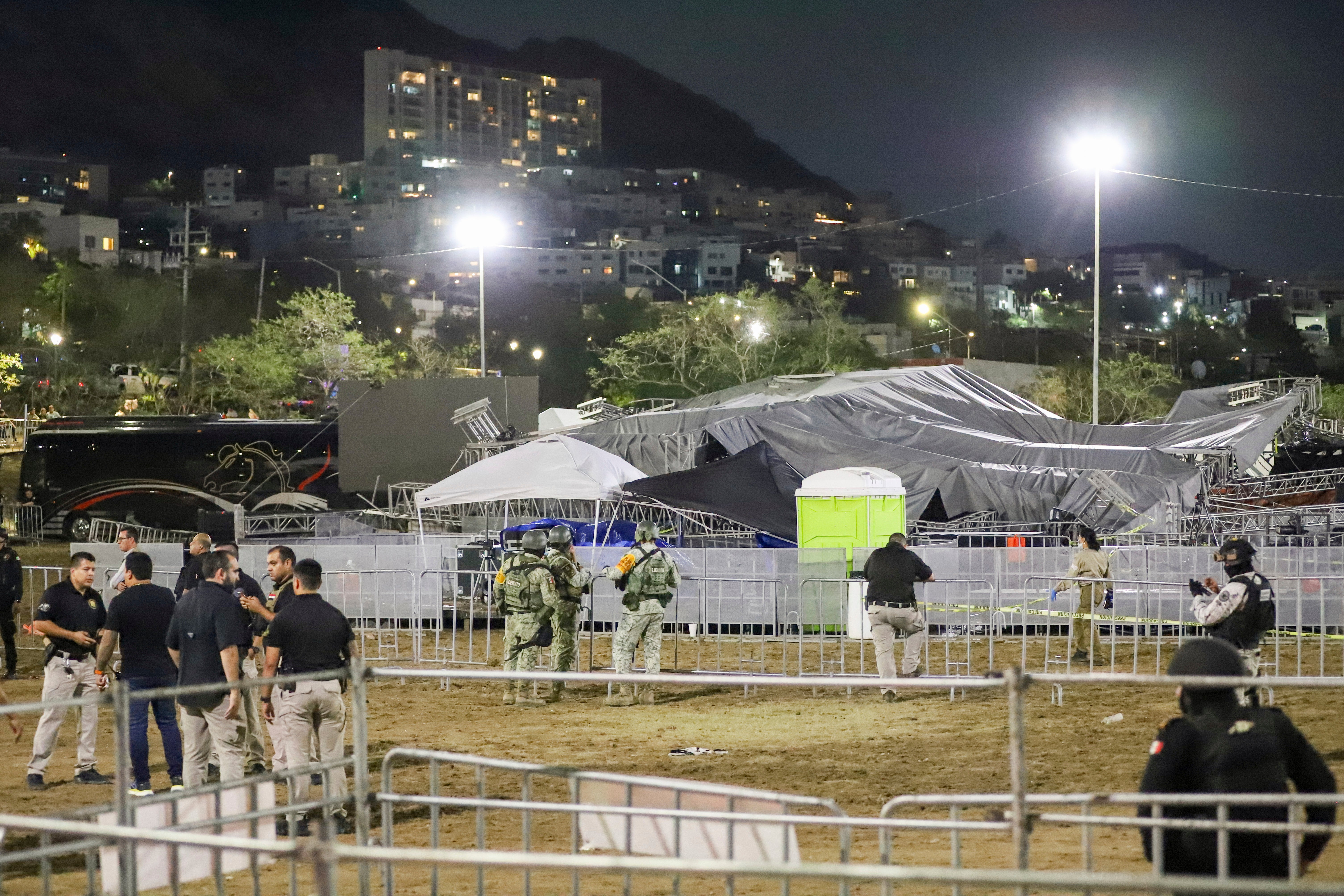Warnings were issued about high winds before deadly Mexico stage collapse, but they went unheeded
Warnings were issued well before a campaign event about winds that caused a deadly Mexico stage collapse this week, but they went unheeded

Your support helps us to tell the story
From reproductive rights to climate change to Big Tech, The Independent is on the ground when the story is developing. Whether it's investigating the financials of Elon Musk's pro-Trump PAC or producing our latest documentary, 'The A Word', which shines a light on the American women fighting for reproductive rights, we know how important it is to parse out the facts from the messaging.
At such a critical moment in US history, we need reporters on the ground. Your donation allows us to keep sending journalists to speak to both sides of the story.
The Independent is trusted by Americans across the entire political spectrum. And unlike many other quality news outlets, we choose not to lock Americans out of our reporting and analysis with paywalls. We believe quality journalism should be available to everyone, paid for by those who can afford it.
Your support makes all the difference.Warnings were issued well before a campaign event about high winds that caused a deadly Mexico stage collapse this week, raising questions about why those alerts went unheeded.
Organizers didn’t cancel an outdoor campaign rally in a suburb of the northern city of Monterrey, leaving the crowd only seconds to react when the stage structure, lighting and a giant screen were blown down, killing nine people and injuring 189.
It was tragically par for the course for a country where Category 5 Hurricane Otis killed 52 people in the resort of Acapulco; to urists say they got little so warning or protection, they had to huddle behind bathroom doors as the hurricane blew out the windows and even the walls of their hotel rooms.
On Thursday, just hours after Wednesday's collapse, officials said the winds occurred with no warning and that nobody could have predicted them. “This thing yesterday took us by surprise. There wasn't even a storm forecast for the city," said Nuevo Leon state Gov. Samuel Garcia.
That was simply not true. Mexico's National Weather Service had issued a bulletin at 1:13 p.m. — more than six hours before the collapse — warning of gusts of wind up to 43 mph (70 kph) in the area that “could blow down trees and billboards.” Another bulletin at 6:28 p.m. warned of possible tornados in the area.
Jon Porter, the chief meteorologist at AccuWeather, said outside stages are vulnerable to winds of as little as 35 mph (56 kph). He said radar and other observations suggest the winds at the Monterrey venue probably reached around 50 mph (80 kph) Wednesday, noting high winds “create special safety risks to elevated stages.”
“This is the type of situation that should not have been a surprise, at this particular venue, because these super thunderstorms were approaching and these kinds of thunderstorms are well known to produce gusty winds," Porter said.
“This is another tragic disaster that could have been averted by improved severe weather risk mitigation and situational awareness," Porter said. “In situations like these, the venue can be proactively evacuated and people moved to safe shelter prior to the arrival of gusty winds.”
Porter said his company had been sending special alerts to businesses in the area who subscribe to AccuWeather's service 35 minutes before the winds arrived in the area.
The Citizens Movement party that organized the rally did not immediately respond to questions about why they did not cancel the event or evacuate the crowd beforehand.
Meanwhile, any hopes the Mexican government might learn from the event were crushed on Thursday, when President Andrés Manuel López Obrador — who is a political ally of the Citizens Movement party — absolved them of any blame, even before an investigation was carried out.
“We know that they are not to blame,” the president said Thursday. “Like everybody else, they were holding a rally during the campaign."
The dangers of outdoor stages in high winds have long been known. In the United States, a similar stage collapse killed seven people at the Indiana State Fair in 2011 a nd sparked change among outdoor venue operators.
“It was a watershed moment,” Porter said. “People saw very vividly how quickly something can go wrong and how lives can be taken in a matter of seconds.”